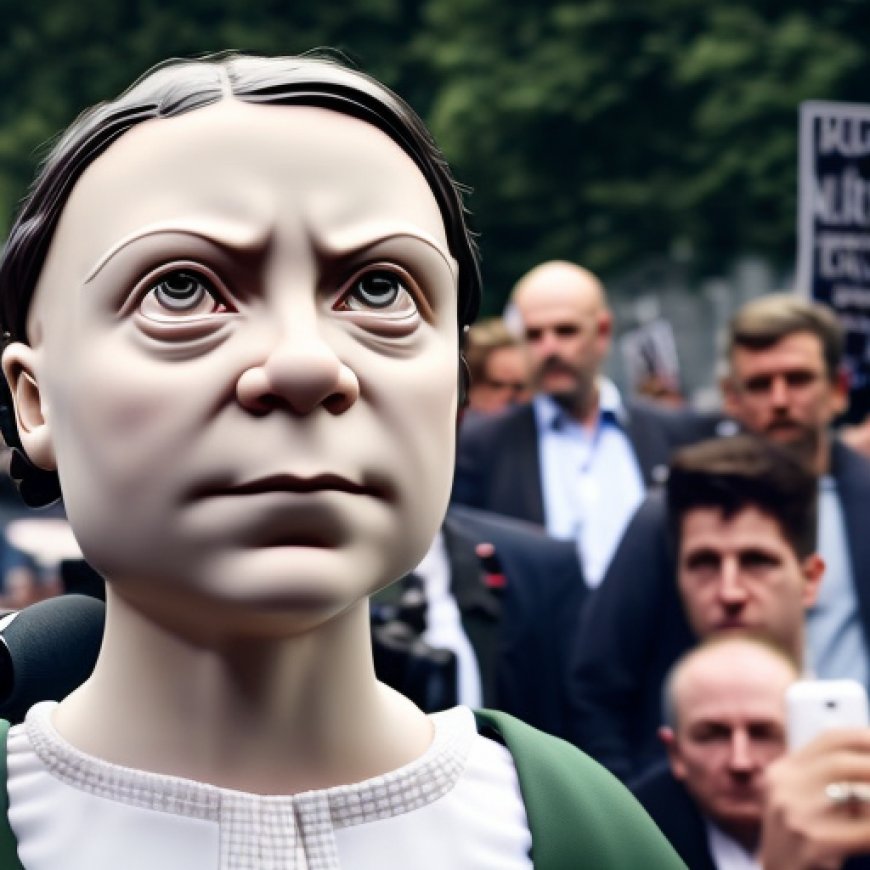Greta Thunberg detained at fossil fuel subsidy protest in Brussels


Climate Activist Greta Thunberg Arrested in Brussels Protest Against Fossil Fuel Subsidies
Climate activist Greta Thunberg was among scores detained on Saturday after staging a sit-in protest demanding an end to EU subsidies for fossil fuels.
Protest Details
- Date: Saturday
- Location: Brussels
- Participants: Greta Thunberg, ‘United for Climate Justice’, ‘Extinction Rebellion’
- Objective: End EU subsidies for fossil fuels
Greta Thunberg, a Swedish climate activist, was arrested by Belgian police on Saturday during a demonstration against fossil fuel subsidies by the European Union. The protest took place in Brussels, just a few kilometers away from the European Parliament and European Commission buildings. Dozens of demonstrators from ‘United for Climate Justice’ and ‘Extinction Rebellion’ joined Thunberg in blocking a key road.
Arrests and Support
During the protest, the demonstrators were surrounded by police, and several arrests were made. Onlookers showed their support by chanting ‘you are not alone’ as the activists were detained.
Open Letter to the European Union
Last week, ‘United for Climate Justice’ addressed an open letter to the European Union and European Commission President Ursula von der Leyen. The letter highlighted three main goals:
- Setting a timeline to phase out fossil fuel subsidies by 2025
- Adopting a comprehensive methodological guidance for EU Member States
- Establishing a framework for transparency and accountability
The group emphasized that the European Union still spends over 100 billion euros annually on subsidizing the oil and gas industry, despite von der Leyen’s call to phase out these subsidies. ‘United for Climate Justice’ urged the European Commission to fulfill its promises and take immediate action.
Group’s Statement
Angela Huston Gold, the spokesperson for ‘United for Climate Justice’, stated that the group demonstrated “because the climate crisis has reached catastrophic and deadly levels.” She criticized the European Commission for continuing to support oil and gas industries with billions of euros in subsidies, despite their commitment to stop subsidizing fossil fuels. Gold emphasized the need for marches, letters, lawsuits, and civil disobedience to draw attention to the climate crisis, as she believes that the European Commission will not listen otherwise.
Future Actions
‘United for Climate Justice’ plans to continue and escalate their actions across Europe and Brussels. Attendees at the protest distributed stickers advertising further actions to be taken later in October.
SDGs, Targets, and Indicators in the Article
1. Which SDGs are addressed or connected to the issues highlighted in the article?
- SDG 13: Climate Action
- SDG 17: Partnerships for the Goals
The article addresses the issue of fossil fuel subsidies and the need to take action to combat climate change. This aligns with SDG 13, which focuses on urgent action to combat climate change and its impacts. Additionally, the article mentions the group ‘United for Climate Justice’ and their open letter to the European Union, highlighting the importance of partnerships and collaboration (SDG 17) in addressing the issue.
2. What specific targets under those SDGs can be identified based on the article’s content?
- SDG 13.2: Integrate climate change measures into national policies, strategies, and planning
- SDG 17.16: Enhance the global partnership for sustainable development, complemented by multi-stakeholder partnerships
The article emphasizes the need for the European Union to phase out subsidies for oil and gas, which aligns with SDG 13.2. By integrating climate change measures into their policies and strategies, the EU can contribute to the global effort to combat climate change. The involvement of various climate activist groups, such as ‘United for Climate Justice’ and ‘Extinction Rebellion,’ highlights the importance of multi-stakeholder partnerships (SDG 17.16) in addressing the issue of fossil fuel subsidies.
3. Are there any indicators mentioned or implied in the article that can be used to measure progress towards the identified targets?
- Reduction in fossil fuel subsidies
- Adoption of comprehensive methodological guidance for EU Member States
- Establishment of a framework for transparency and accountability
The article mentions the goal of ‘United for Climate Justice’ to set a timeline to phase out fossil fuel subsidies by 2025. This reduction in subsidies can serve as an indicator of progress towards SDG 13.2. Additionally, the group calls for the adoption of a comprehensive methodological guidance for EU Member States, which can be measured by the development and implementation of such guidance. The establishment of a framework for transparency and accountability can be measured by the implementation of reporting mechanisms and monitoring systems to track progress in phasing out fossil fuel subsidies.
SDGs, Targets, and Indicators Table
| SDGs | Targets | Indicators |
|---|---|---|
| SDG 13: Climate Action | 13.2: Integrate climate change measures into national policies, strategies, and planning | – Reduction in fossil fuel subsidies – Adoption of comprehensive methodological guidance for EU Member States – Establishment of a framework for transparency and accountability |
| SDG 17: Partnerships for the Goals | 17.16: Enhance the global partnership for sustainable development, complemented by multi-stakeholder partnerships | – Involvement of climate activist groups like ‘United for Climate Justice’ and ‘Extinction Rebellion’ – Collaboration between the European Union and climate activists |
Source: euronews.com








